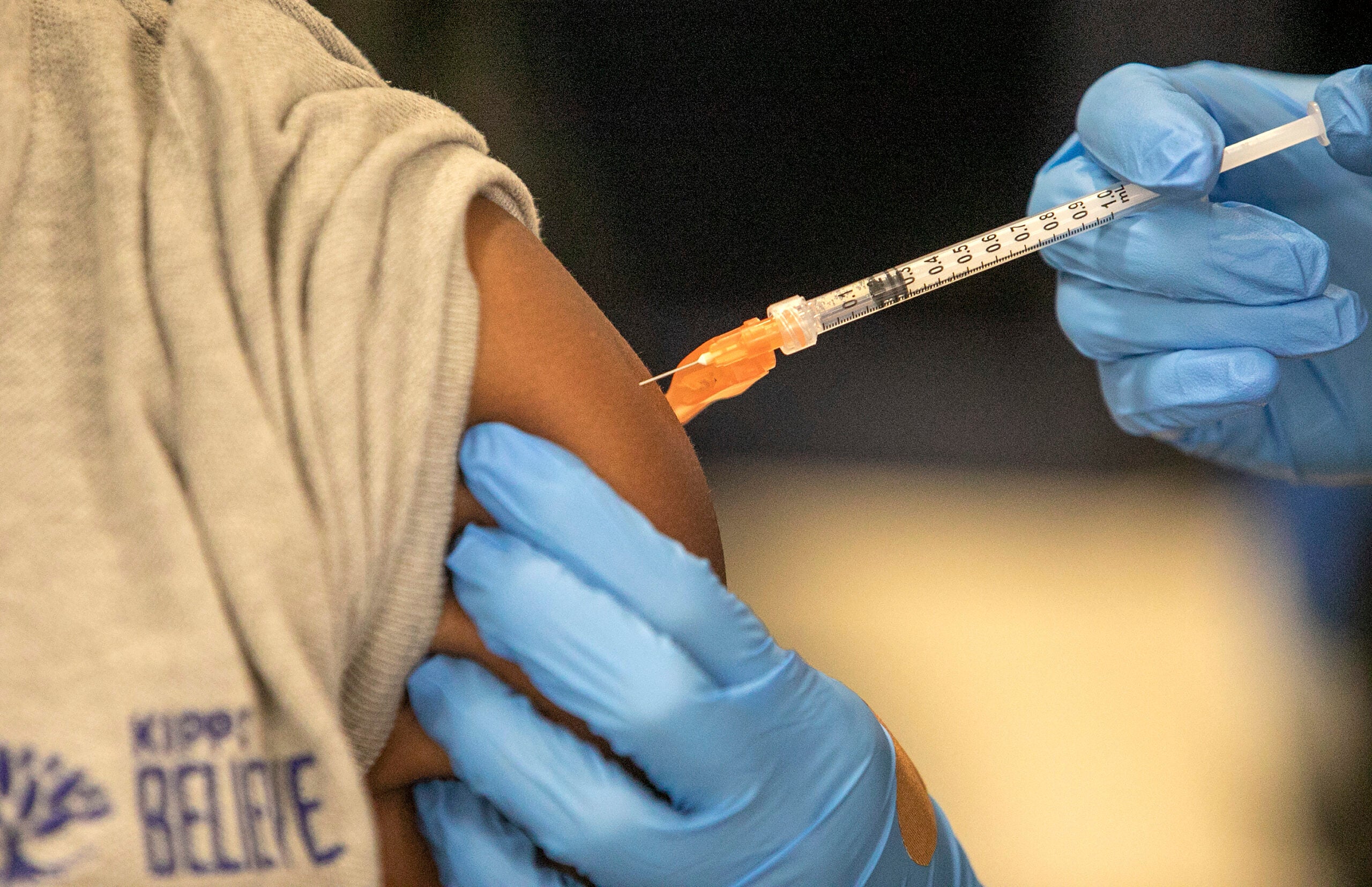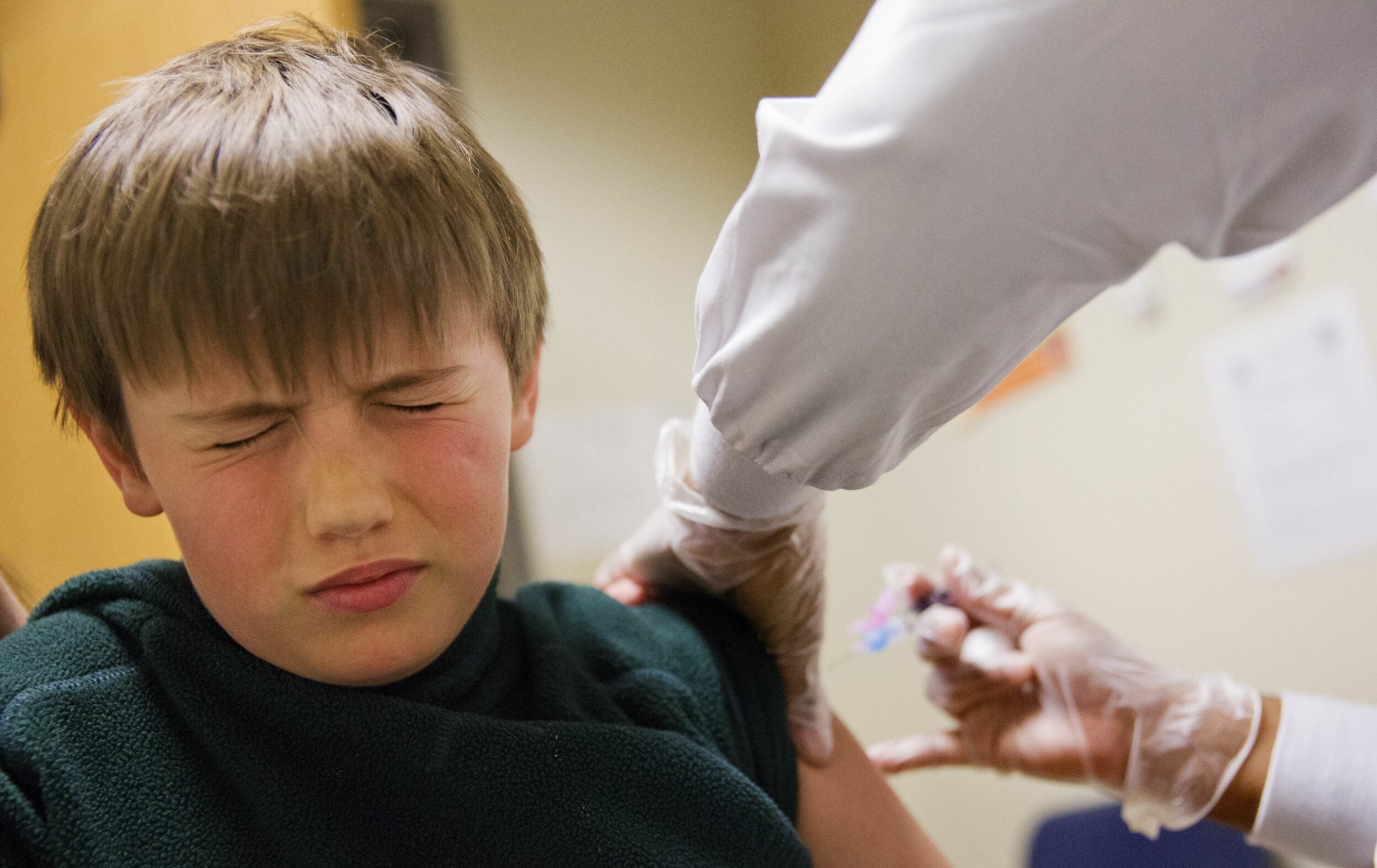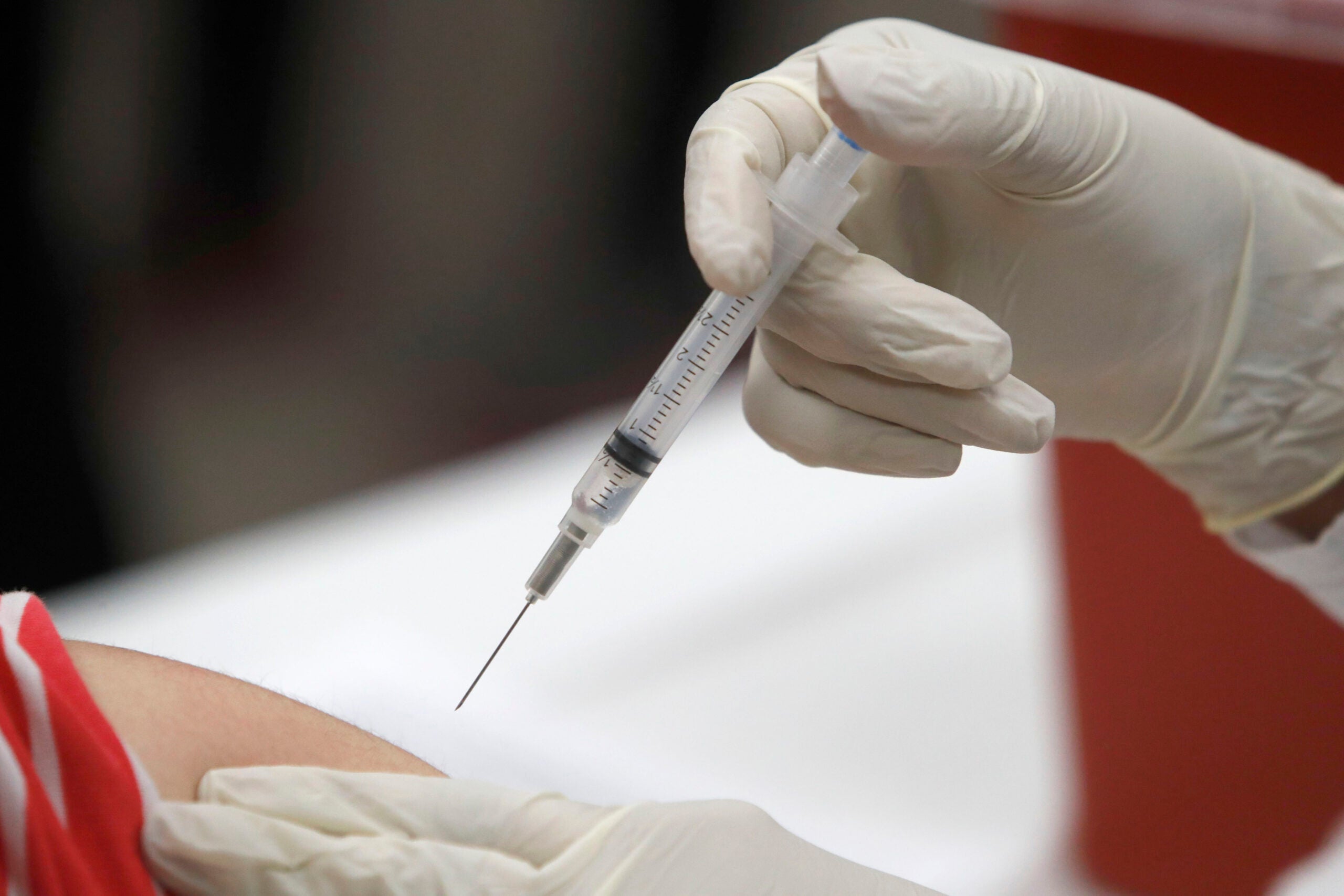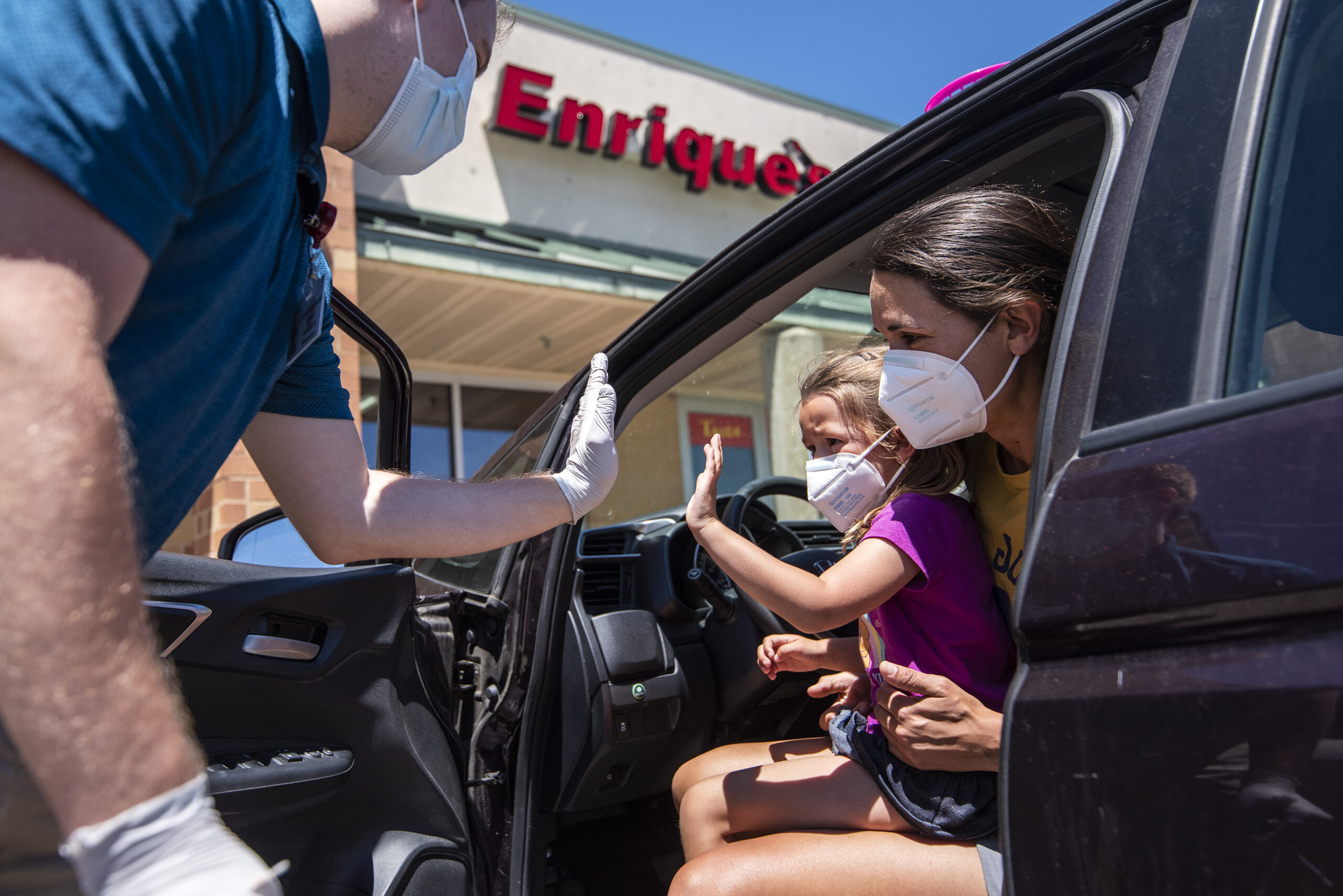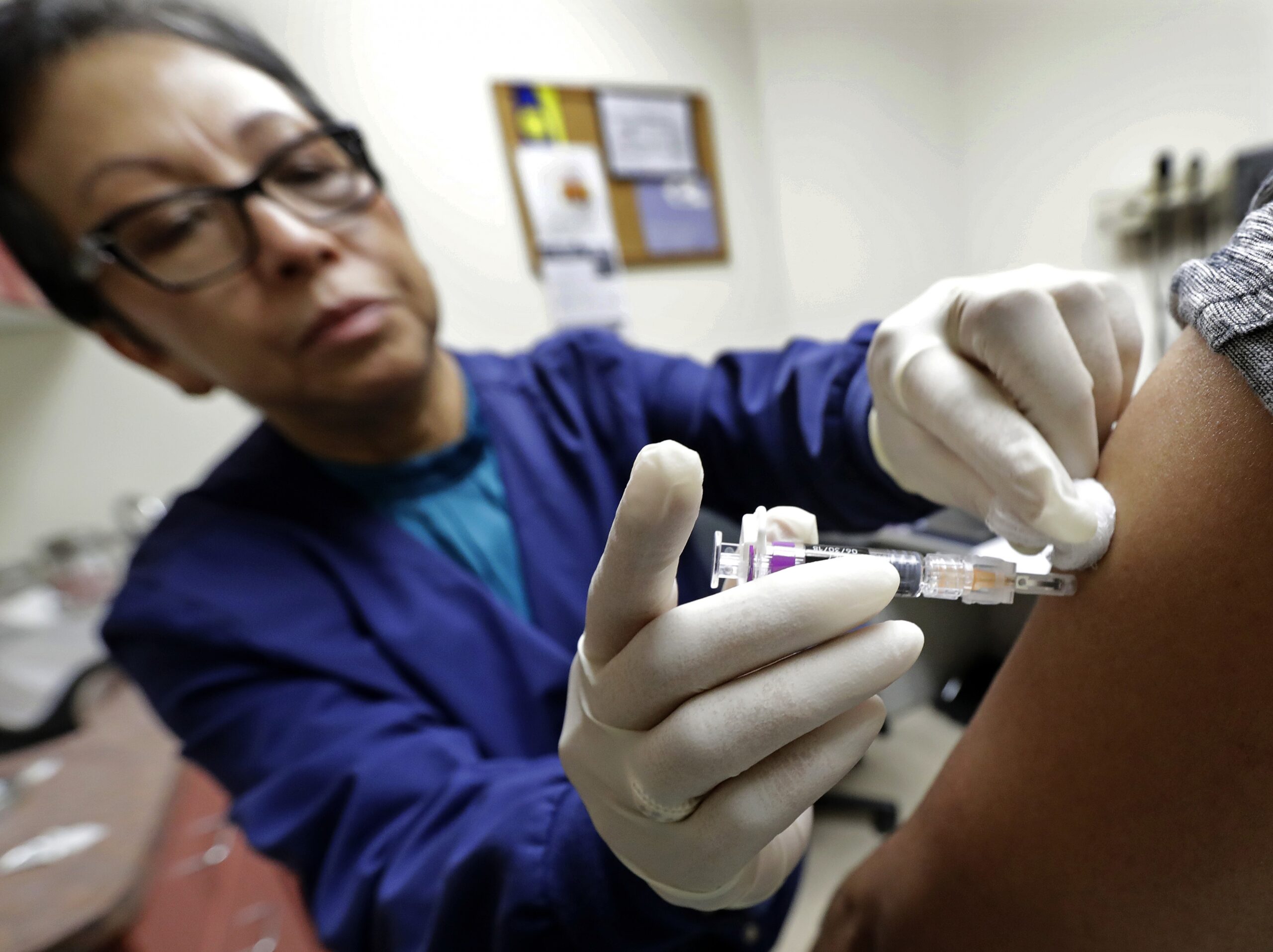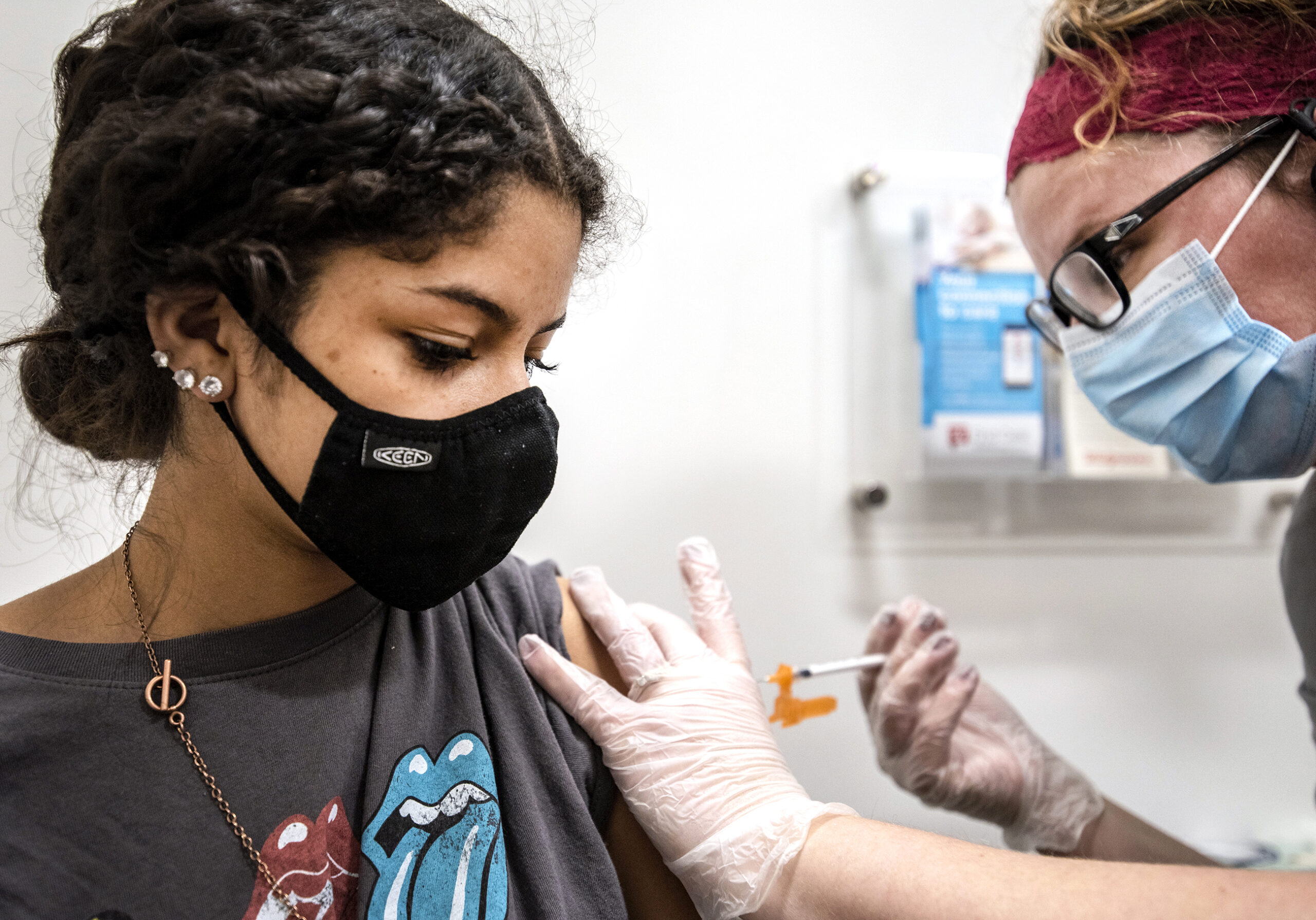State health officials are urging people to get vaccinated for respiratory illnesses as kids head back to school.
Dr. Ryan Westergaard, a chief medical officer for the Wisconsin Department of Health Services, said updated COVID-19 shots will become available this fall in a virtual media briefing on Wednesday. The vaccines will target Omicron variants that are currently circulating. Those shots are expected to become available by Oct.1.
COVID-19 cases are still much lower than any time last year. State data shows 201 residents had confirmed or likely cases of the virus as of Aug. 22. That’s roughly 10 times lower than the number of cases at the same time last year. Data on hospitalizations shows the number of patients hospitalized as of Aug. 13 is also six times lower than the same period last year.
Stay informed on the latest news
Sign up for WPR’s email newsletter.
Despite that, Westergaard said data from the Centers for Disease Control and Prevention indicates hospitalizations have gone up 21 percent over the past week. He said hospitalizations have also grown in five of the state’s seven public health regions in the last several weeks. While levels are still lower than last year, he said they’re seeing more activity with the virus now than earlier in the summer.
“There’s certainly a risk for clusters of infection, outbreaks in schools as schools start,” Westergaard said. “I think probably some communities have already seen local clusters of people coming down with colds and COVID specifically.”
Westergaard said most tests are processed at home rather than by a lab, if people take tests at all. That at-home test data is not reported and is not included in the state’s case numbers.
He recommended parents urge kids to wash their hands, follow good respiratory hygiene and keep kids home when they’re sick. He said those measures will become more important as people spend more time indoors during the winter months.
“People probably still should consider wearing masks or feel comfortable wearing masks if they’re in a crowded indoor setting, if there’s a lot of flu, COVID and RSV, going around in their community,” Westergaard said. “But we’re definitely past the age where that’s going to be required or enforced in those places.”
He said it’s a good idea for people to get vaccinated now if it’s been a year since their last shot. That includes people who are planning to take a trip or those who are at higher risk of severe disease. He said others at lower risk may want to wait until updated COVID-19 vaccines become available in October.
In addition to updated COVID-19 shots, the Food and Drug Administration has also approved two new vaccines for RSV, or respiratory syncytial virus. The respiratory virus can cause severe disease in newborns and older adults, and it’s the number one cause of hospitalizations among infants across the country.
Westergaard said the FDA approved two new vaccines for pregnant women and adults 60 and older this year.
“These are going to be very useful tools, and, hopefully, help keep people happy and healthy in Wisconsin,” he said.
So far, he said they haven’t heard of any significant increase in RSV infection in Wisconsin.
As for the flu, Westergaard said they’re also urging people to get a flu shot this fall. Last year, he said only 38 percent of Wisconsin residents received the flu vaccine, which is down from previous years.
Wisconsin Public Radio, © Copyright 2025, Board of Regents of the University of Wisconsin System and Wisconsin Educational Communications Board.
